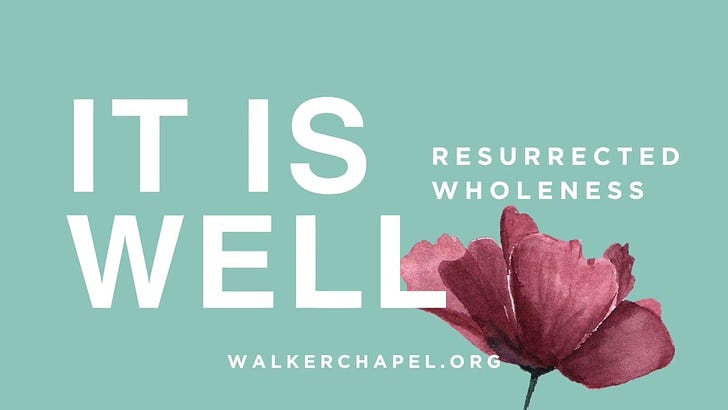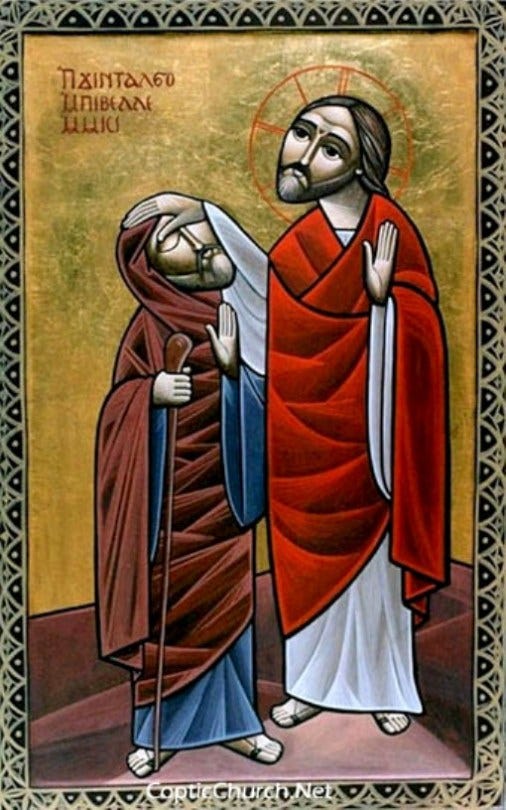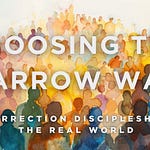
When I saw that the Revised Common Lectionary assigned Psalm 23 this week, I thought, “Challenge accepted!” For many of us, Psalm 23 is reserved for funerals and memorial services. Every funeral and memorial service I have officiated has included Psalm 23. The other readings might vary, and the preacher may not even include the psalm in their sermon, but Psalm 23 stands as a bulwark in our times of grief. The psalmist assures us that our dearly departed family or friend “shall dwell in the house of the Lord”[i] while we dwell in grief.
But does the psalm more familiar to mid-week and Saturday memorial and funeral services provide us with a glimpse into the good news of the resurrection? Does Psalm 23 have anything to say to us today when we do not find ourselves gathering to grieve but instead are gathered to proclaim Christ resurrected?
“The Lord is my shepherd, I shall not want. The Lord makes me lie down in green pastures; The Lord leads me beside still waters, The Lord restores my soul.”[ii]
Our physical bodies require more attention and resources than we realize. I was shocked to learn this week that in 2022, in The United States, we spent $4.5 trillion, or $13,493 per person, on healthcare.[iii] This money was spent on keeping us healthy and alive: flu shots, appendectomies, in-grown toenail removals, and heart bypasses. When it comes to cosmetic procedures, we spent over $26 billion on being nipped and tucked.[iv] Add on gym memberships, visits to the barbershop, cosmetic products, and other odds and ends; we spend a fortune on ourselves.

The physical nature of your body is just one way you were created in God's image. God cares about the image you were made in more than the amount of money we spend maintaining or attempting to “perfect” what God deemed “good” long before we discovered Botox, facelifts, and hair dye.
After hearing myself preach for nearly seven years, I can hear where it might be easy for some to say that I would argue that God has little interest in our physical wholeness. After all, I can sound like a broken record preaching the same old song of God’s grace. Yes, God loves you just as you are right now, but God loves you too much to leave you just as you are. The beauty of God’s grace is that God is unwilling to leave us as we are. God is interested in everything, whether our soul or physical body. Your whole self is what God loves, not this piece or that piece of you.
John Wesley, the founder of Methodism, emphasized the importance of holistic well-being, advocating for a balanced approach to spiritual and physical health. He believed that the pursuit of holiness encompassed spiritual disciplines and stewardship of our physical bodies. It is easy to think of the Church as only concerned with the eternal care of our community, but the reality is that because we proclaim that the Kingdom of God is already here, our physical bodies matter as much as our souls. Wesley’s words echo through the ages, urging us to embrace a lifestyle that nurtures both body and soul.
Nadia Bolz-Webber, a contemporary theologian, beautifully articulates the intrinsic worth of every human being in the eyes of the Divine. She reminds us, “What God claims to love, do not deem unworthy of that love. What God has called good, do not call anything other than good. What God has animated with God’s breath and endowed with a soul and God’s image, do not treat with anything less than dignity.”
It is easy to think that we are the only ones worried about the physical nature of this life. We spend so much time and effort on ourselves that we can forget that the Lord indeed cares for us.
Psalm 23 makes clear – through green pastures, still waters, and overflowing cups – that God is not only interested in making sure our physical bodies are raised when we claim the promised resurrection but that our bodies matter today.

You’ll remember from Sunday school and our communion liturgy that God provided for Israel when they wandered in the desert, wondering if the Lord had abandoned them. When the bread of heaven fell to the ground, the Israelites asked Moses, “‘What is it?’ For they did not know what it was. Moses said to them, ‘It is the bread that the Lord has given you to eat.’”[v] the Lord did not abandon the physical needs of Israel.
The signs and miracles performed by Jesus addressed the spiritual needs of the people and, at the same time, addressed physical ailments that had been neglected or deemed not treatable.
The Gospel of Mark tells us, “And a woman was there who had been subject to bleeding for twelve years. She had suffered a great deal under the care of many doctors and had spent all she had, yet instead of getting better, she grew worse. When she heard about Jesus, she came up behind him in the crowd and touched his cloak, because she thought, ‘If I just touch his clothes, I will be healed.’ Immediately her bleeding stopped and she felt in her body that she was freed from her suffering.”[vi]
Five chapters later, Jesus heals a man named Bartimaeus, who was blind. Bartimaeus…was sitting by the roadside. When he heard that it was Jesus of Nazareth, he began to shout out and say, “Jesus, Son of David, have mercy on me!” Many sternly ordered him to be quiet, but he cried out even more loudly, “Son of David, have mercy on me!”…Jesus said to him, “What do you want me to do for you?” The blind man said to him…“let me see again.” Jesus said to him, “Go; your faith has made you well.”[vii]
I am not naive. I know that living where we live, with the healthcare plan you all gracious provide for my family and me, that talking about how God cares for our physical bodies can come across as tone-deaf when we know that to be considered “rich” by the stand of the world where many people live on less than $1,000 per day. Individually, we spend more on haircuts, lattes, and dinners out than many in the world would ever dream of being able to spend on their own healthcare for themselves or their children. This is where the “so what” of Psalm 23 and God caring for our physical bodies as much as God cares for our spiritual bodies comes into play.
Today is Good Shepherd Sunday. The Gospel of John depicts Jesus as the Good Shepherd. Jesus said, “I am the good shepherd. The good shepherd lays down his life for the sheep. The hired hand, who is not the shepherd and does not own the sheep, sees the wolf coming and leaves the sheep and runs away—and the wolf snatches them and scatters them. The hired hand runs away because a hired hand does not care for the sheep. I am the good shepherd. I know my own and my own know me, just as the Father knows me, and I know the Father. And I lay down my life for the sheep. I have other sheep that do not belong to this fold. I must bring them also, and they will listen to my voice. So there will be one flock, one shepherd.”[viii]
The disciples may not have known what Jesus meant until the moment when they were navigating life in the light of the resurrection. After the resurrection, Jesus told Peter, “Feed my sheep.”[ix]
Feed Jesus’s sheep not because you need a notch on your spiritual belt or to earn favor with God but because, Peter, you love the Lord.
Jesus invited Peter to join him in the work Jesus had already been doing – feeding, caring for, and nurturing the physical bodies of God’s people as much as they were proclaiming the grace of the Lord. This is the work the Church has been invited to participate in today, acknowledging that the Kingdom of God is at hand.
The Kingdom where death does not hold the last word.
The Kin-dom[x] is where we are connected so much that we cannot ignore the physical needs of those we invited to dinner any more than we can ignore the needs of someone on the other side of the world.
This invitation to participate in the ministry of the Good Shepherd is an invitation to grace, for in caring for one another, we encounter our risen Lord when we share a meal, provide for one another, and remember that Christ has promised to sustain the body through bread and wine.
[i] Psalm 23:6
[ii] Psalm 23:1-3
[iii] https://www.pgpf.org/blog/2024/01/why-are-americans-paying-more-for-healthcare
[iv] https://www.plasticsurgery.org/news/press-releases/american-society-of-plastic-surgeons-breaks-down-2022-plastic-surgery-trends-among-different-demographics#:~:text=The%20average%20surgeon's%20fees%20for,surgical%20procedures%20in%20the%20U.S.
[v] Exodus 16:15
[vi] Mark 5:25-29 NIV
[vii] Mark 15:46-52
[viii] John 10:11-1
[ix] John 21:17
[x] The term "kin-dom" is often used as an alternative to "kingdom" in Christian theology and discourse, particularly within feminist and liberation theology circles. It emphasizes a relational, inclusive understanding of God's reign or realm, highlighting the interconnectedness and equality among all people as members of God's family.
The concept of "kin-dom" seeks to move away from hierarchical and patriarchal connotations associated with the term "kingdom." Instead, it emphasizes the idea of a community bound together by familial ties, where each individual is valued and included regardless of social status, gender, ethnicity, or any other human-made distinction.
In essence, the "kin-dom" of God reflects the vision of justice, equality, and love that Jesus preached and embodied during his ministry on earth. It invites believers to participate in building a world characterized by mutual care, compassion, and solidarity, guided by the principles of love and justice.

















Share this post